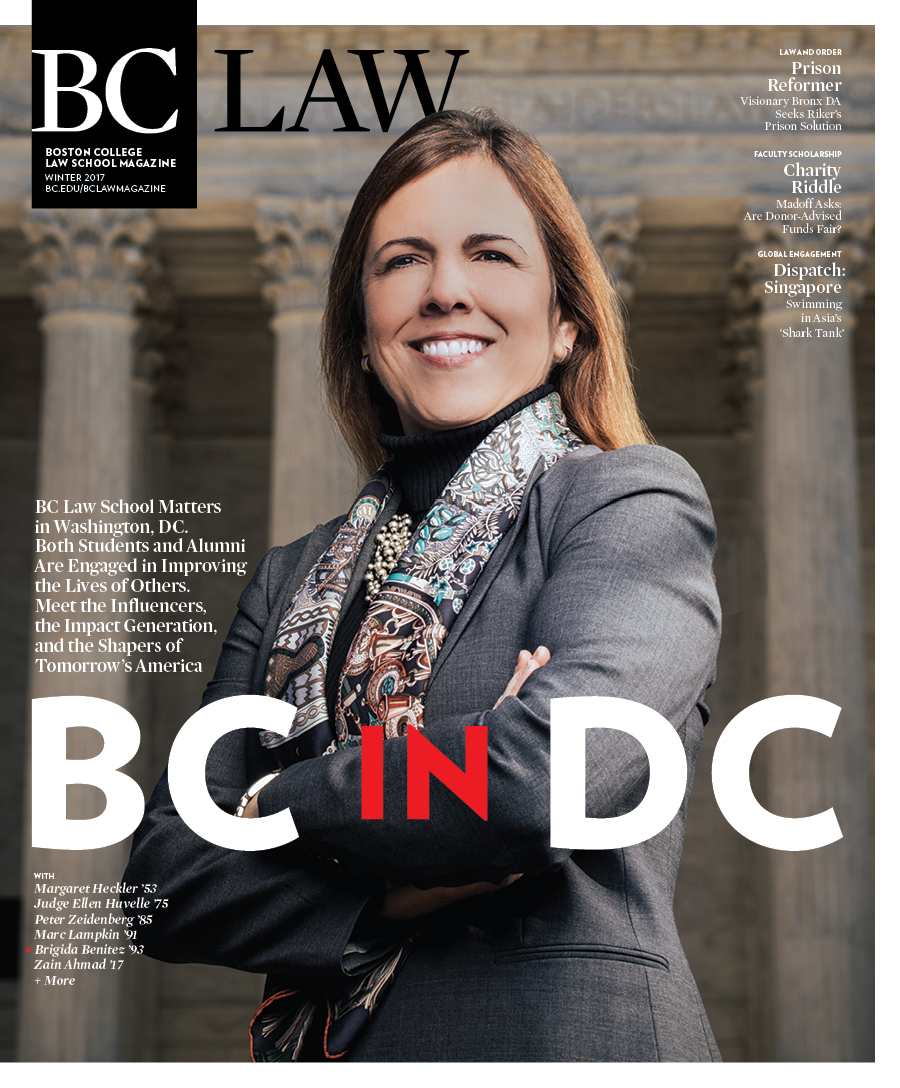Pocket Résumé
Tom Burton ’96 Founder and chair of Mintz Levin’s Energy Technology Practice. In Deep Water In addition to his volunteer leadership role with the New England Aquarium, he is an avid salt water fly-fisherman. All Charged Up He drives a Tesla. A Loyalist Active on the Alumni Board for many years, he has just completed his term as President.
When Tom Burton ’96 advises his clients to keep it clean, he’s not just blowing hot air. As founder and chair of Mintz Levin’s Energy Technology Practice, Burton advises a broad range of clients, from start-ups to Fortune 100 companies, on building businesses in the clean energy sector. His clients span markets such as solar and wind, smart grid and energy efficiency, energy storage, water technologies, waste treatment, biofuels, electric vehicles, and green buildings.
“We were probably the first firm to focus a practice in this industry space,” explains Burton, an expert in the field of corporate finance. “My focus is on creating profitable private sector technology companies and at the same time making the world a sustainable place.”
When it comes to energy and clean technology, new business models, particularly in terms of financing, are critical. “Clients come to us to help structure transactions that are novel, that haven’t been done before,” says Burton. “We focus on energy innovation in a way that is socially responsible and sustainable.”
For example, traditional investors in venture capital funds have expected to put money into early-stage or emerging firms and then, in a relatively short period of time, profit from selling shares to the public or a merger and acquisition. “Clean energy businesses tend not to be as simple as software or apps,” says Burton. “They’re asset-heavy businesses involved in energy management, energy storage, and water treatment. Equipment has to be deployed and the technology is based on industrial focuses. You have to have a longer time horizon and investors have to have different expectations and a wider range of skill sets.”
Large corporations also find it strategic for their businesses to support and build energy technology-based operations. “We have clients that could come into a commercial enterprise like big box retailers to manage their electricity,” he explains. “We’ll put in equipment and software. The customer flips the switch or cranks a knob and innovation is applied to what were once low technology applications.”
Burton is quick to point out that there are many misconceptions about clean energy. “What is most challenging is trying to upend stereotypes around the economic benefits of clean energy. There are a lot of places where clean, sustainable energy is much more cost effective,” he says. “Deepwater Wind is being deployed to Block Island, replacing diesel, which is currently shipped to the island for its electricity. Wind energy in that case is much cheaper than shipping diesel and, obviously, wind has no emissions while diesel has extreme emissions.”
Beyond Mintz Levin, Burton, immediate past president of the BC Law Alumni Board, assisted in the creation of the Northeast Clean Energy Council, a trade association that helps clean energy companies start, scale, and succeed. He judges business competitions like the CleanTech Open and MIT 100K competition that attract capital to fledgling ventures, some of which come out of local universities such as MIT, BC, and Harvard, and has worked to put in place laws and incentives to support the industry as it has grown.
He is also a trustee and chair of the overseer board for the New England Aquarium, which focuses its research efforts on promoting marine conservation and ocean health. “Research and education are essential to global health,” says Burton. “I combine my work and philanthropic activities around the common theme of promoting environmental health and sustainability.”





